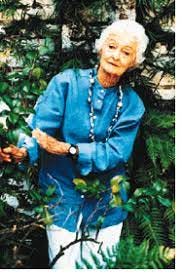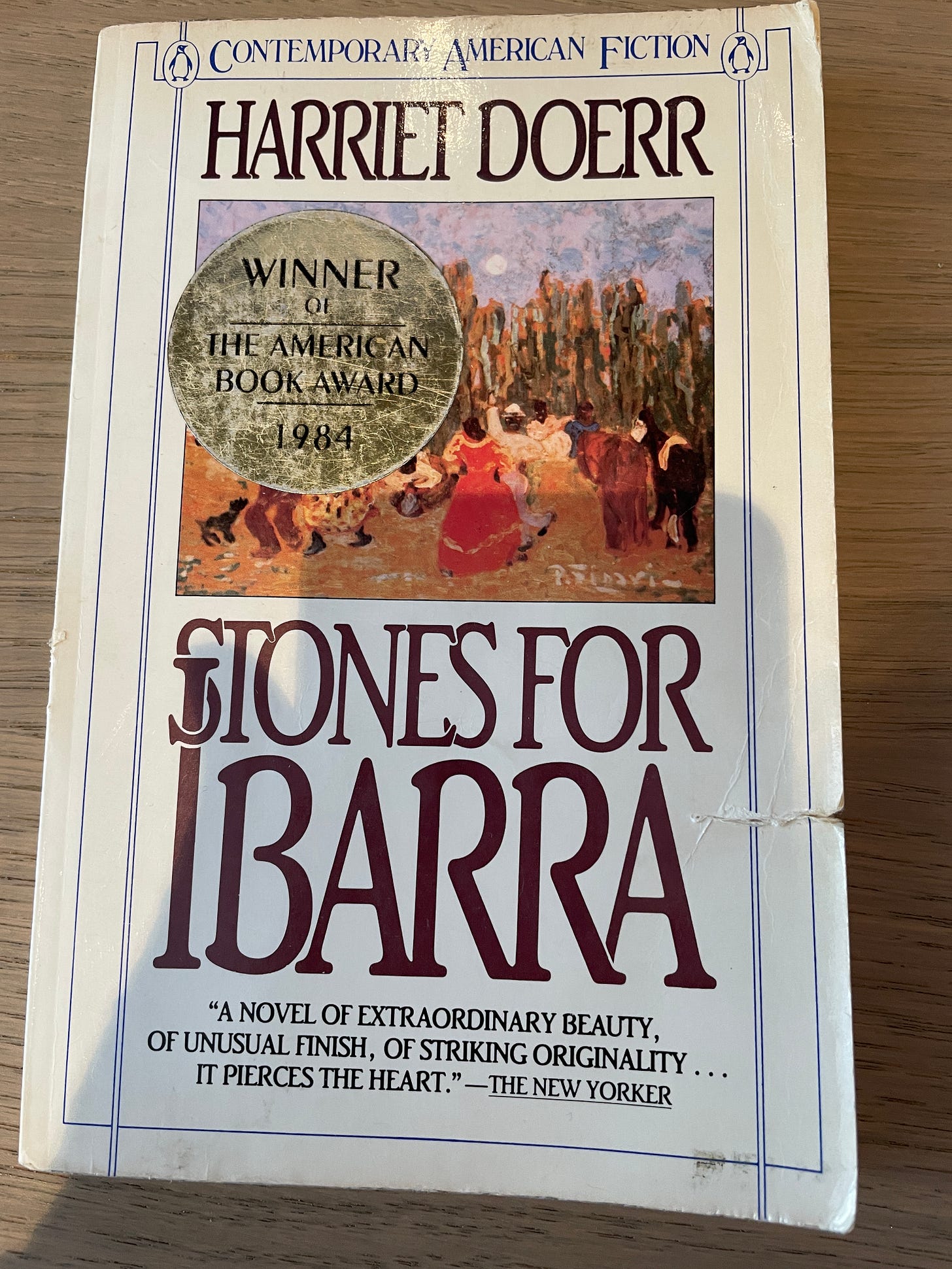Get Ready for Harriet Doerr and Lesson 16 of Write it! How to Get Started
Stones for Ibarra by Harriet Doerr in parts: on setting and grief

Harriet Doerr stopped her college education to marry and raise children. Three years after her husband’s death from leukemia, she went back to school, finished her bachelor’s degree at age 67 and began studying writing in the Stegner Creative Writing Program at Stanford at the invitation of Wallace Stegner himself. Her short stories became the novel Stones for Ibarra that won the National Book Award in 1983 when she was 73.
Table of Contents for all 19 lessons
Keep reading with a 7-day free trial
Subscribe to Mary Tabor "Only connect ..." to keep reading this post and get 7 days of free access to the full post archives.





